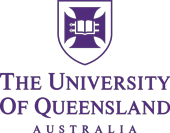Mattarollo joined the research group led by Professor Ian Frazer at The University of Queensland Diamantina Institute in 2007 to undertake postdoctoral research, investigating immune regulation in animal models of cervical cancer.
Mattarollo furthered his training in the field of cancer immunotherapy by secondment to the laboratory of Professor Mark Smyth at the Peter MacCallum Cancer Centre in Melbourne (2010-2012). There, he and his group developed a novel therapeutic cancer vaccine for B cell lymphomas, and through collaboration with international colleagues in France, made significant inroads into understanding how the immune system is required for effective chemotherapy treatment outcomes in cancer patients.
Returning to UQDI in May 2012, Mattarollo established his own group with the vision and goal to develop blood cancer immunotherapies at the Translational Research Institute and UQDI. His interest currently lies with translation focused pre-clinical research. Mattarollo’s team fundamentally investigates combination immune-based therapies for blood cancers with focus on developing a novel therapeutic cancer vaccine against non-hodgkin's lymphoma. The approach is centred on the concept that multi-modality therapy for cancer that incorporates immunotherapeutic strategies to initiate or enhance anti-tumor immunity will be most effective for achieving durable clinical responses and improving patient outcomes. The longer-term objective is to improve treatment quality and outcomes for patients with advanced cancers through translation-directed immunological research.
Another expanding theme of his group's research is investigating how chronic psychological stress impacts upon immune system function and how this subsequently affects both the development of cancer and responses to cancer therapies. The goal of this research is to identify the consequences of chronic stress on immune function and cancer progression to provide evidence for complementary treatment approaches that aim to reduce stress and minimize its impact on this disease.
Experience
-
–presentNHMRC Career Development Fellow, Diamantina Institute, The University of Queensland
- Brisbane
- Website
- Article Feed
- Joined


